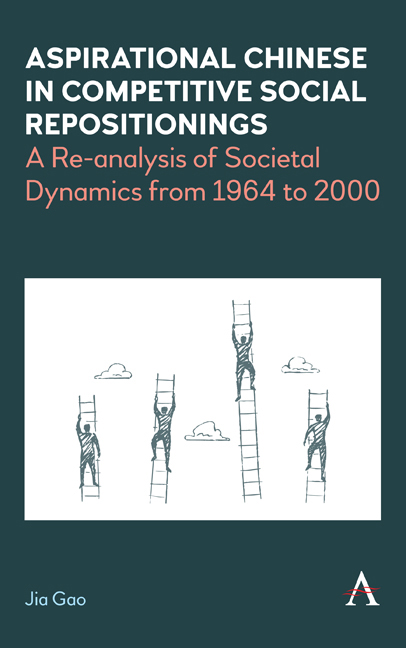 Aspirational Chinese in Competitive Social Repositionings
Aspirational Chinese in Competitive Social Repositionings Book contents
- Frontmatter
- Contents
- List of Abbreviations
- List of Figures
- List of Tables
- Preface and Acknowledgements
- One The Absence of Everyday Chinese in the Dichotomous Paradigm
- Two Rebranding the Communist Heir Narrative and the Cultural Revolution
- Three Tearing the Utopian Veil Down By the Sent-Down Youth
- Four Crying Out for Changes in the Second Half of the 1970s
- Five Battling for the Advantages Under the Dengist Political Alliances
- Six Climbing Different Social Ladders From the Mid-1980s
- Seven Filling in the Post-1989 Vacuum Left By Educated Liberals
- Eight Seizing Chances to Be Entrepreneurial in Post-1992 China
- Nine Towards a Theory of Competitive Social Repositioning
- References
- Index
Six - Climbing Different Social Ladders From the Mid-1980s
Published online by Cambridge University Press: 28 February 2024
- Frontmatter
- Contents
- List of Abbreviations
- List of Figures
- List of Tables
- Preface and Acknowledgements
- One The Absence of Everyday Chinese in the Dichotomous Paradigm
- Two Rebranding the Communist Heir Narrative and the Cultural Revolution
- Three Tearing the Utopian Veil Down By the Sent-Down Youth
- Four Crying Out for Changes in the Second Half of the 1970s
- Five Battling for the Advantages Under the Dengist Political Alliances
- Six Climbing Different Social Ladders From the Mid-1980s
- Seven Filling in the Post-1989 Vacuum Left By Educated Liberals
- Eight Seizing Chances to Be Entrepreneurial in Post-1992 China
- Nine Towards a Theory of Competitive Social Repositioning
- References
- Index
Summary
In recent years, the decade of the 1980s in China has attracted research interest among researchers old and new. Like all nostalgic views of the past, which often reflect present discontents and apprehensions about existing social conditions, this new interest among some Chinese seems to be based on a comparison of the current decade to the first decade of reform – especially the differences in official discourses, if not ideological tendencies, policy re-alignments and socio-political climates. Several cultural critics have even called for a ‘return to the 80s’ (Hong and Cheng 2009). Although such discussions have mostly taken place within the fields of literary and cultural studies, the notion of returning to the 1980s has various connotations and denotations, making the topic more socio-political than literary.
A number of researchers have explored why the 1980s, in particular, has become the focus of nostalgia. In the words of Zhang and Zhang (2011), in an early analysis of the topic, this nostalgia is a condensed representation of the sentiments of many critics and writers. They argue there are three types of publications that can be regarded as part of the push for a return to the 1980s. Besides the pure academic literature, such as various journal articles and textbooks, there is a sizeable body of memoirs, biographies, autobiographies and other records that are historical or semi-historical rather than purely literary works; and, finally, there are numerous literary depictions of the 1980s, generally portraying it as a decade full of passion, ideals and changes. Reflecting these depictions, the phrase ‘emotional memory’ has been used to explain the attraction to the 1980s.
Under the influence of some earlier publications, as well as the unquantifiable oral histories of 1980s in China, new cohorts of writers produced a large number of inspirational works for China's huge book market. New titles about the 1980s are often associated with optimistic, positive and inspirational narratives or depictions, invoking the era's supposed opportunities for new careers, entrepreneurship, becoming rich, living an exciting life – even becoming a straight-A student, as many are assumed to have been in the 1980s.
- Type
- Chapter
- Information
- Aspirational Chinese in Competitive Social RepositioningsA Re-Analysis of Societal Dynamics from 1964 to 2000, pp. 117 - 140Publisher: Anthem PressPrint publication year: 2023


